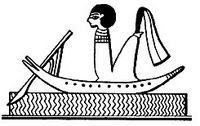Spirituality really means transcending the self
Thomas Moore’s contribution, "The Quest" is the first in Seeking the Sacred: Leading a Spiritual Life in a Secular World, a collection of essays based on talks delivered as the Seekers’ Dialogue series in Toronto during late 2004 and early 2005. Mary Joseph, founder and executive director of Seekers' Dialogue explains in her Introduction, the motivation and desired outcomes of "conversations" with different experts. While interweaving observations from his own spiritual quest, Moore says:
Dietrich Bonhoeffer
Letters and Papers from Prison (Touchstone, 1997)
James Hillman
Re-Visioning Psychology (HarperCollins, 1992)
Peter Lamborn Wilson and Nasrollah Pourjavady
The Drunken Universe: An Anthology of Persian Sufi Poetry
(Omega Publications, 1999)
Thomas Moore
Care of the Soul (Harper Paperbacks, 1994)
The Soul’s Religion (Harper Perennial, 2003)
Lynda Sexson
Ordinarily Sacred (University Press of Virginia, 1992)
Shunryu Suzuki
Zen Mind, Beginner’s Mind (Weatherhill, 1973)
"Fundamentalism in religion is a defensive move that comes from fear of the other. Those who believe that God is on their side, that whatever they say is divinely sanctioned and it’s their right to force it on the world, become violent and aggressive in defending their anxious beliefs. But rather than vilify fundamentalists, I think it would be more effective to admit we are all fundamentalists on some level. We all adhere to certain beliefs and language. Such fundamentalisms get in the way of an open and adventurous spiritual life...Moore recommends:
The conflict between science and fundamentalism is rooted in faulty literalism and a refusal to recognize nuances in meaning. There is no essential contradiction between science and religion, only a misunderstanding of the difference between religious mystery and scientific fact.
When you talk about mystery, which is what religion largely is all about, you need art and poetry and language that doesn’t quite say everything you wish you could say, but attempts to express individual insights while remaining open to interpretation. All psalms, all prayers, all religious art and architecture are symbolic, poetic, imagistic. Because religion is concerned with the most subtle and complex of mysteries, it is the very essence of religious expression to be poetic...
Spirituality really means transcending the self so we can be open to people around us who have a vision of the world and of community that is beyond the individual. This is a state some people have called God, but it is the unnameable, the unknown, and the mysterious...
If spirituality isn’t concrete and a part of every aspect of daily life, it isn’t worth more than a good idea. If it doesn’t get you beyond your preoccupation with self, it isn’t really spirituality, it is an illusion."
Dietrich Bonhoeffer
Letters and Papers from Prison (Touchstone, 1997)
James Hillman
Re-Visioning Psychology (HarperCollins, 1992)
Peter Lamborn Wilson and Nasrollah Pourjavady
The Drunken Universe: An Anthology of Persian Sufi Poetry
(Omega Publications, 1999)
Thomas Moore
Care of the Soul (Harper Paperbacks, 1994)
The Soul’s Religion (Harper Perennial, 2003)
Lynda Sexson
Ordinarily Sacred (University Press of Virginia, 1992)
Shunryu Suzuki
Zen Mind, Beginner’s Mind (Weatherhill, 1973)




